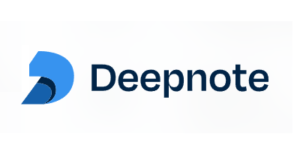
Deepnote Raises $20M to Scale Jupyter-Based Data Science Biz

Deepnote, the San Francisco software firm building a data science collaboration platform atop a Juypter notebook base, today announced it has raised $20 million in a Series A round.
Deepnote was founded in 2019 with a plan to build a cloud-based offering where data scientists can work together to develop machine learning models. Starting with the open source Jupyter base, which is already popular among data scientists, the company added collaboration features, as well as tools for bringing in outside data and job scheduling.
The company aims to automate multiple aspects of the data science workflow, including connecting to data, exploring it, analyzing it, presenting results, and building ML models. While it supports Python and SQL, Deepnote says non-technical users can also work with its platform.
“Analysts, data scientists, and analytics engineers alike love using Deepnote,” Jakub Jurovych, the co-founder and CEO of Deepnote, said in a press release today. “The platform provides the intuitive and flexible tools needed to solve the hardest problems in data science and machine learning.”
The Series A was co-led by Index Ventures and Accel, both of which participated in the company’s 2020 seed round. Y Combinator and Credo Ventures also participated in the Series A.
“We’re so excited to work with Jakub and this incredibly passionate group of data technologists,” Vas Natarajan, a partner with Accel, said in the press release. “They understand data science workflows at the most nuanced levels. There isn’t a more impressive team building tools for this community.”
Deepnote claims that tens of thousands of users at organizations like Discord, Gusto, Harvard, Stanford, and MIT already use its software. The Series A will help Deepnote to scale its operation. The company says it plans to double the number of employees to 50 employees in the next 12 months
Related Items:
Snowflake Adds Python Support with Winter Release
COVID Notebooks Aims to Speed Predictive Models
What’s the Difference Between AI, ML, Deep Learning, and Active Learning?































